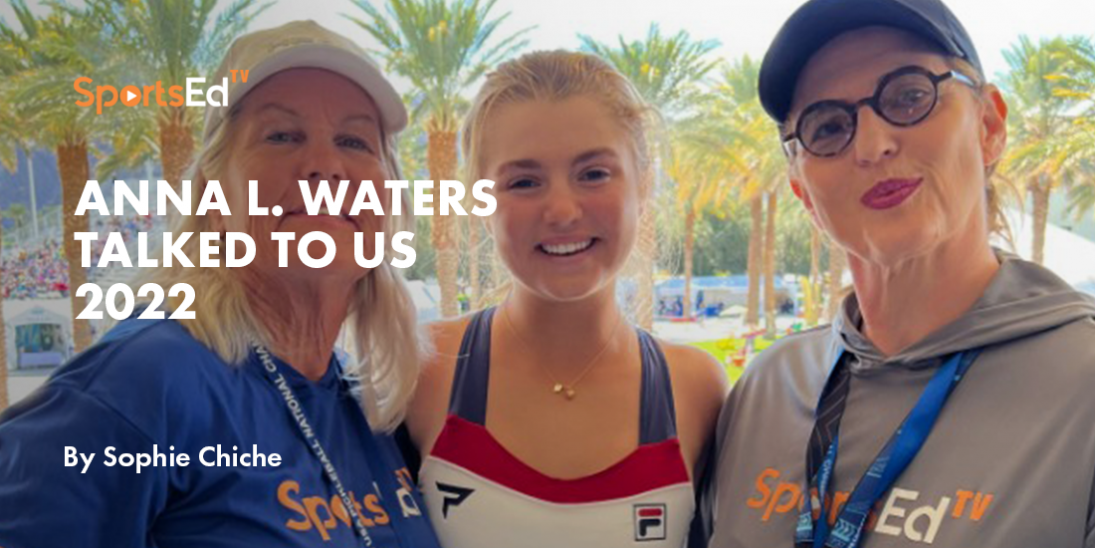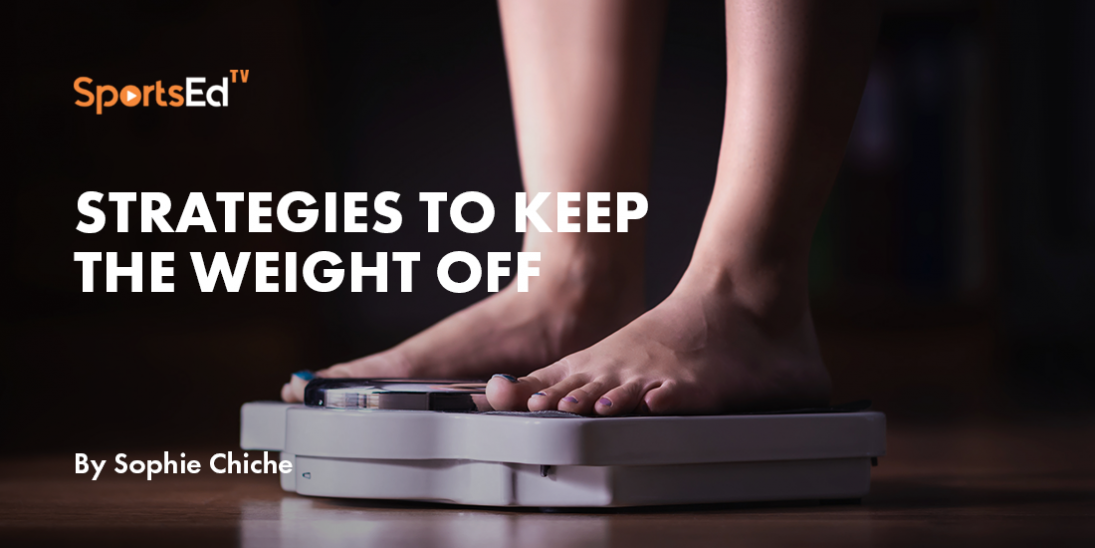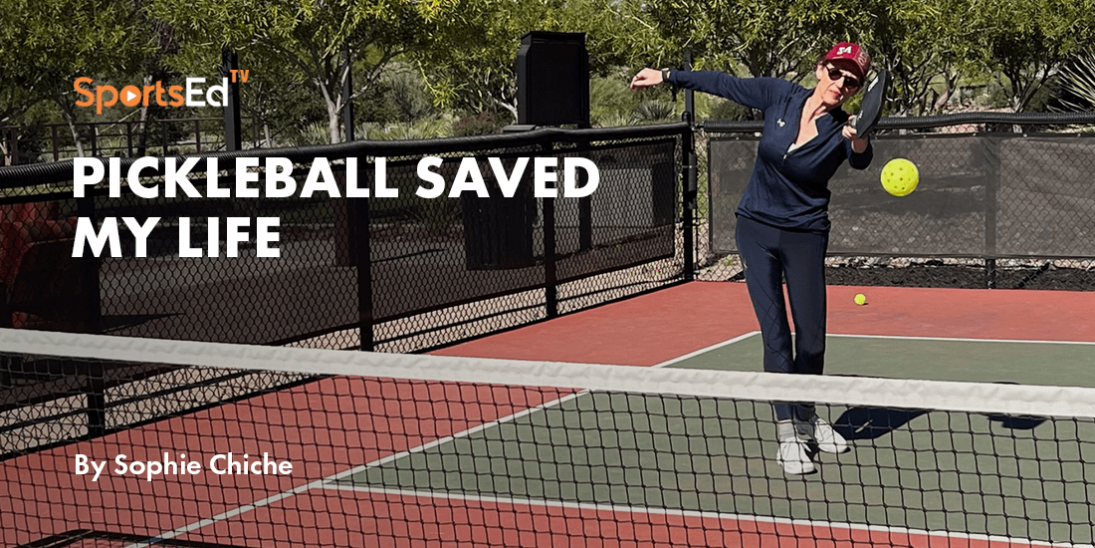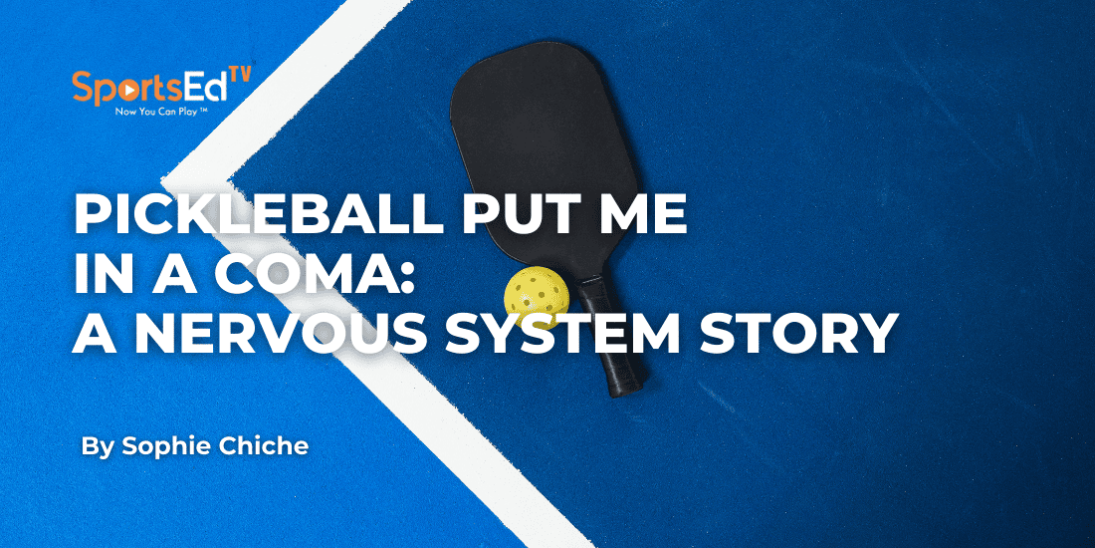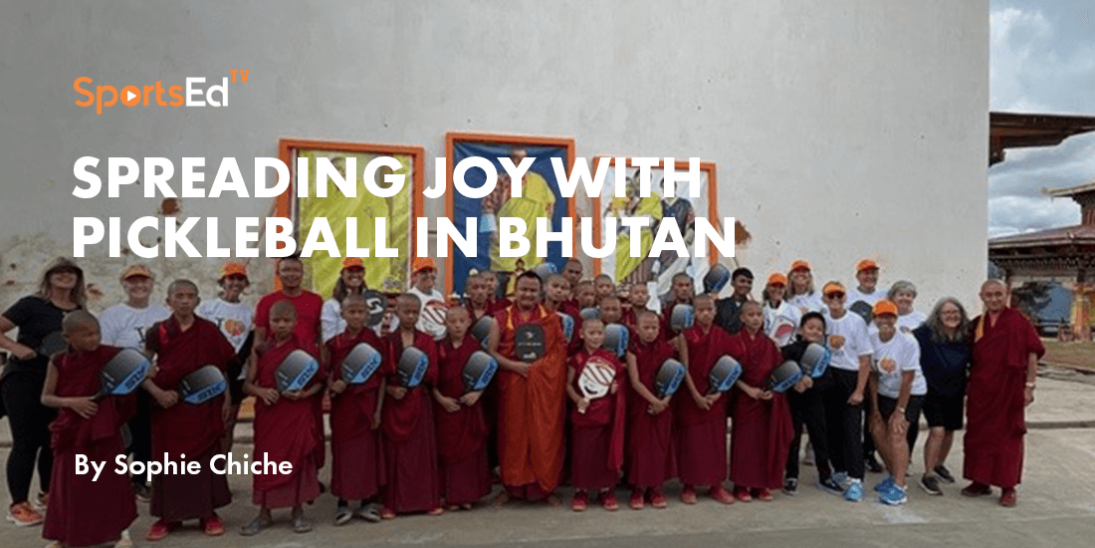Pickleball
Welcome and thanks for visiting...

Transforming Life Through Pickleball: A Journey of Fitness, Fun, and Self-Discovery.
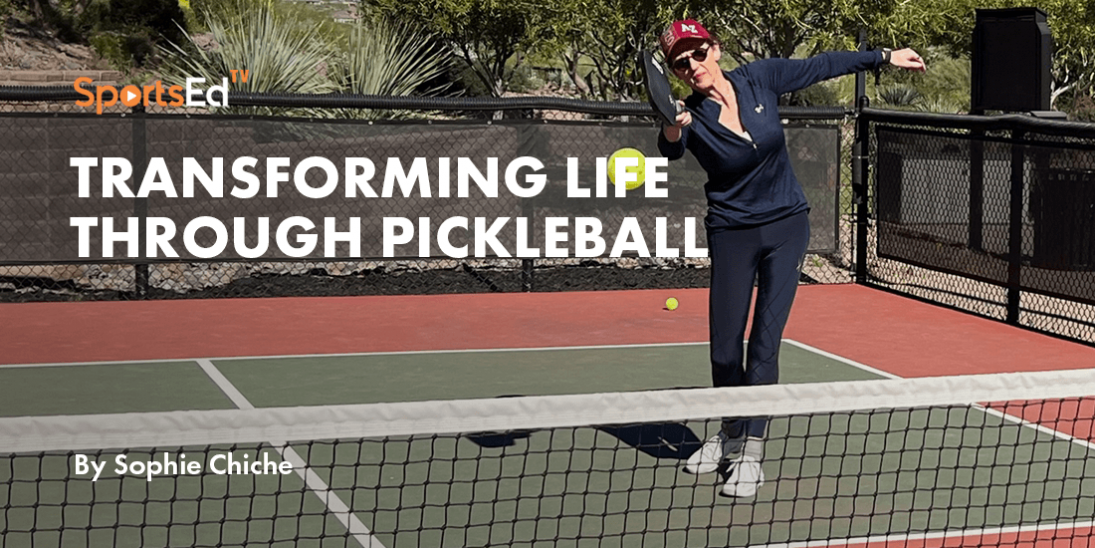
Abby: how did you even get into pickleball in the first place? How did it come across your paddle?
Soph: I had not heard about pickleball. Literally never heard the word. And I moved into a new area that has courts pretty much there available, and I was hearing the click-click sound when I would drive by them.
And I got intrigued. I just walked up there, and someone said, do you want to try? And I said yes. They invited me in and explained the minimum, and I've been playing almost every day. It's a pretty strong commitment.
Abby: And do you play with the same people? Is there a group of diehard players around you?
Soph: I would say people become diehard faster in Pickleball than I've ever seen in anything else. It's easy to have fun quickly. It's not easy to become a great player. That requires a lot more, but you can have fun very quickly.
It’s an addictive sport. People tend to want to do it again and again. I also think it’s an easy social scene. Golf is four hours with the same people. In tennis, you're really, really far from the person you’re playing with. Pickleball, you're close. You can almost chat while you play.
So, I became a diehard very fast,
Abby: You said that it's easy for it to be fun really quickly. With a lot of sports, it’s not necessarily true.
Soph: That’s one of the reasons people become addicted fast. It is fun and easy to start playing.
Abby: So, you play pretty much every day. How has it been on your body to go from not playing pickleball or really any sports to playing almost daily? How was it to throw your body in such a strong experience?
Soph: It became about something else. My body was building muscle. I was burning calories. I was increasing my stamina. But to me, I was just playing. Being heavier was harder. When I first started, I was 65 pounds heavier than I am now. I was playing last week, and I, said, “Boy, it's easier to play when you're lighter.” You bet it is!
It was very moving for me because I've had a long journey with my weight and not being athletic. I used not to be an athletic person. I would consider myself an athlete now.
Now, I am often at the courts around 6:30 AM. And I eat according to how I want to feel on the court. I become friends with people because they are students of the sport. And it's a funny turn of history for me because of being the kid nobody wanted on their team.
The impact on the body is not as hard as other sports because it’s a small court. You don't have to move as much. That's why a lot of older people play. Where I live, we have people who are in their early 80s or mid-80s and playing very actively. If you play strategically, you don’t have to run around as much.
Abby: As a fellow human who was not always picked first on a sports team, I could outwit many of my classmates. I love that the entry point is accessible to someone like me, where I can also be strategic.
Soph: There is also a crucial element of partnership. I have seen games where we did not play as well as our opponents, but we won because we were tight on our side. We had each other’s backs. We boosted each other’s better playing.
The skill of connecting, trusting, and communicating with the person on your side is half the game.
Abby: Cool. I love that it is also a low-risk place for people to practice trust. That's really a very cool layer to the game.
You talked about eating according to how you want to play. Can you share a little bit more about what that looks like?
Soph: There are foods that give me energy and foods that suck my energy dry. If I eat rice or pasta, I can fall asleep right there and then. So before playing, I eat proteins, good fats, and fast carbs, maybe half a banana with almond butter.
I drink more water because I want to be hydrated on the court. I used not even to know what it feels like not to be hydrated or not have energy. I thought that was just the way I felt.
So, if I eat the kind of food that sucks my energy, I'm sluggish on the court. If I eat too close to playing, I want to throw up on the court because my food is not digested. So, I think about these things to optimize how I feel when I play.
It's deliberate. It's intentional, which it used not to be. That also plays into the rest of my day. I want to have energy, so I pick my food accordingly.
Abby: I love the practice of noticing what impacts me and what doesn't. As someone who wouldn't have classified themselves as an athlete, I don't pause to notice how what I'm eating affects how I'm moving through the world. I love that practice of just noticing things like rice puts you to sleep.
I know you don't drink caffeine because, like you so beautifully said, when your body is tired, you rest. You don’t force your body to think it’s not tired when it is.
Soph: In my journey of dropping 200 pounds, I interviewed a friend of mine I thought had a healthy relationship with food. He said he eats according to how he wants to feel. So, on a weekday at lunch, he chooses foods that make him feel clear and full of energy so he can show up for his life in the afternoon. But if he wants pizza or pasta, he eats that on Sunday, when he doesn’t mind being less energetic.
I have become strategic like that. If I have an afternoon full of calls, I don't want to be struggling with myself. It would be like putting bananas instead of gas in the tank of my car. And then complain that my car doesn't work very well.
It’s a partnership. I see my relationship with Pickleball and food and rest and everything else at this point. I ask myself: “Am I acting as my ally? Am I being a partner to myself? Or am I doing things that get in the way of the good stuff?
Abby: I love this intentionality. You don't have to be strict because you know your intention is to fuel and nourish your body. So, there's no punishment.
There's no reward. If I eat well all day, then I get to have a Mars Bar or whatever people reward themselves with. The reward is that I get to feel energetic and full of life. It’s like preemptive self-love.
I know you mostly play every day, but have you ever had a period where you don’t? Do you ever say to yourself: “I can't do this right now. I got to take a break.”
Soph: Oh my God. Yes. And it was not for the reasons you would think. I love playing. But there was a time when I was really struggling with my game. I could not hit the ball; I was making silly mistakes. I just got off my game, and that lasted for a couple of months. So I stopped going. It felt like punishment.
Abby: How do you manage yourself when it gets tough?
Soph: Some days, you eat the bear, and some days the bear eats you. Some days, I’m able to push through, and some days, not so much. And that’s OK. I am building the muscle I need to stand the pressure.
One day, I was playing with one of my friends who's been a strong supporter. She's a teacher, and we're on the court, and I cannot see the ball, and I cannot return it; it was just awful. And I turned to her and said, “I'm leaving.” And she looked at me very lovingly, and she said: “No, you're not.”
So, I stayed, and I struggled through, and I had to build the stamina for that. It was very profound for me. I talked to myself and accompanied myself. “I hear you. I know you're struggling right now, but I love you. And we're going to do it. I'm going to be there with you, and we're going to push through.” And now my stamina is ten times what it used to be. And I'm sure it's ten times less than it will be as I grow into it.
Abby: Yeah. Especially since, on the surface, it could seem to an outsider that the stakes are low. You're not a professional. There are no scholarships on the line, no brand deals. You could just walk off the court and give your body a break. But the stakes are high because of that commitment to yourself and the building of that skill.
Soph: I think that what you just said taps exactly into this feeling of being an athlete, although I'm not competing in the Olympics. It’s the mentality: every ball is a really important ball. I know I'm not Tiger Woods, and that putt is not going to make me win or lose $5M, but it doesn't matter. This is the ball I am playing, and I care.
It reminds me of this beautiful story. It was a practice for professional basketball players. And this guy walks in late and throws his bag on the ground. But then he plays really well. And at the end of the practice, as he's walking away, the coach says, “That was a horrible practice,” and the whole team is surprised because he played really well. The coach continued: “You were late and threw your bag on the floor with no respect.” The way you show up to the game is as relevant as the number of baskets he made. That was profound for me to hear.
Abby: How we do something is how we do everything.
Soph: The concepts on the court are true in life. A couple of nights ago I had to write an article, and it was not coming. I said to myself, “I’m leaving”. And I saw my friend's face in my mind lovingly saying: “No, you're not.” And I stayed with it. I wrote the article.
Abby: In that moment, your ability to pull in that image of your loving friend who said: “No, you're not”, is so key to building this stamina.
Soph: And the way she said it was more about me and what I was going to feel if I walked out of the court. It wasn't about her feeling that I was letting her down. It wasn't judging. It was about if you walk out the court right now, you are going to feel like shit about yourself.
Abby: And similar to eating lunch. Knowing if you eat pasta, you're going to sleep in the afternoon. It’s about what happens afterward. What are you going to feel if you do it? Who are you on the other side of it? To proactively know what's going to happen from you doing something is a powerful concept.
I really loved what you said about the theme of this conversation. I'm not an Olympic athlete, but I feel like one. And the commitment piece, the nourishing your body piece, and the daily practice. What can you say to people who started where you started and don't have those practices in their back pocket? How do they take a baby step?
Soph: One of them is to find something you love doing. I love playing pickleball. Like everything I said here, I wouldn't say about going to the gym because that's not where I thrive.
It reminds me of this trainer who I asked: “What do you think is the best workout.” And he very sweetly said: “The one you're going to stick with.”
Find something that you don't have to make yourself go. You're going because you love it. You love your people, and you progress with them. There are a couple of friends here that started after us. And we are learning together, and the other day, she did a shot that was so good. I saw her like a kid who just took their first step. She was so proud, and I was so proud. And there were no stakes, really. I mean, nobody is winning or losing $1M on that shot, but it felt like it was. It was just so beautiful to watch someone go from not knowing how to do something to doing it. So beautiful.
Abby: That’s the piece that keeps you going in the mornings when you want to hit snooze and not go play.
Soph: Yes. The friends. Sometimes, it’s put the shoes on. Get in the car. Just take one step out of the car. Literally, the smallest step possible will get you there, you know, doing it. It will get you there.
Abby: I love that. I've had challenging yoga classes where I feel like I don't have time for this. I just want to roll up my mat and walk out. But I know that if I stay, I will feel good I did.
Soph: I used to go to the gym and walk on the treadmill. I would do whatever they tell me. And my legs would get all hot, and I wasn't sweating properly, and I would get nauseous. And I had a headache the next day. Like it wasn't a pleasurable experience, during or after. When here, when I play pickleball, I come home, there is a flood of good feelings. Just having moved my body, having been there with my friends, having done something with my guy that we love doing together. That I did something so good for myself.
Yesterday, I was playing, and because I'm lighter - it helps, obviously caught a ball on this side, and then I came back and got a ball on this other side, which I would never gotten before. It would have taken me 20 more seconds to get back to the center, and I returned the ball and returned to center after that. Yeah. It just had this very sweet … Oh, I don't even know how to describe it to you. It was like I was hugging my little girl who wasn't picked on the team, you know?
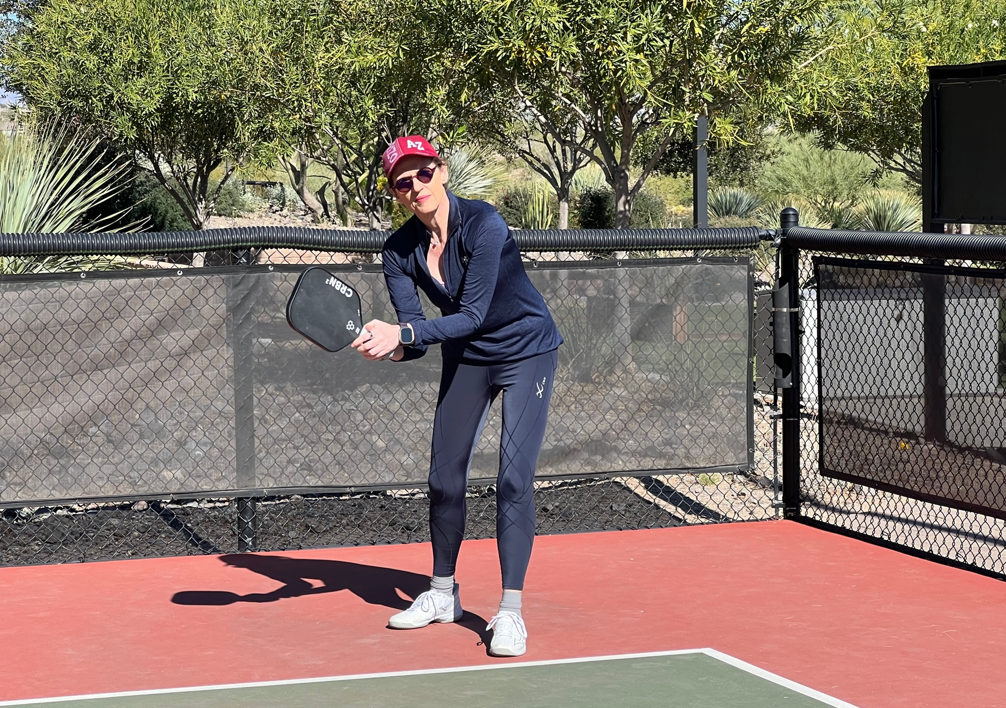
Abby: It's so... reparative, it sounds like. That trust in your body. That trust and safety.
Soph: As you're saying it, I'm thinking some of the people that play up there, they've never touched a paddle, they've never touched a ball, but they know their bodies. They have done other sports. And I don't have that. I didn't have that for so long. I didn't have a reference point of like I played soccer, I did put that ball in the hole. I don't have that experience. It’s an exercise of faith. I have to trust that I'm going to leap and get that ball.
And my body's going to be there for me, trusting that it will be there. It's a difficult thing. And then you do it, and it's there, and you can say to yourself: “Oh my God, I have one under my belt. I can do a second one and keep doing it. And your body builds the trust that it can do it.
Abby: It’s like a suspension bridge where you just keep laying one piece of wood at a time. You just take one step and another, like building that trust just a little bit at a time.
Soph: There is no getting there immediately. There isn't. That's what practice is. One stone after the other, one stone after the other. And at some point, you turn around, and there's a castle.
Abby: I love how much you draw in your lessons from pickleball into life and, and vice versa. I think that's profound. You look at all you do as an opportunity to learn something about yourself. I think that's what makes the ripple effect of pickleball and your life.
Soph: Is there anything else to do? Getting to know yourself deeply. That is how you fall in love with someone. You get to know them completely.




